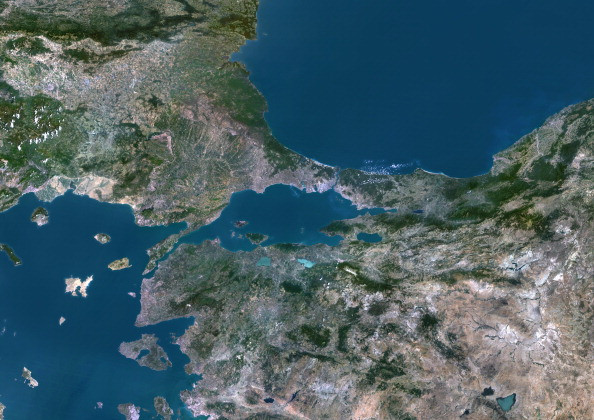First farmers in Europe were migrants from Aegean Neolithic civilisation in Greece and Turkey

The first European farmers may have descended from the Aegean Neolithic civilisation, scientists have said. Ancient DNA data reveals a direct genetic link between European farmers and those of Greece and Anatolia.
The study, published in PNAS, focuses on one of the most widely debated questions in prehistoric archaeology: where did Europe's earliest Neolithic farmers come from?
While some archaeologists trace back their ancestors to local hunter-gatherers, other studies –like this new research – suggest that they came from around the Aegean sea, where farming began.
Examining genome-wide DNA sequences from early farmers on both the European and Asian sides of the Aegean, the researchers reveal an unbroken chain of ancestry leading from Europe back to north-western Anatolia.
Five Neolithic individuals
The scientists worked in total on five ancient Neolithic genomes. Two of the Neolithic genomes came from remains at the site of Barcın, south of the Marmara Sea in Turkey - which is one of the earliest Neolithic sites in north-western Anatolia. The other three were recovered on the other side of the Aegean, and dated respectively from the early, mid and Neolithic era.
After obtaining the five corresponding genome-wide DNA sequences, the researchers compared them with early Neolithic genomes from Europe. They found out that all five individuals shared considerable genetic similarities with individuals from early farming societies in Europe. However, they belonged to different haplogroups - genetic populations with the same ancestor - than pre-Neolithic European hunter-gatherers.
Modelling ancient and modern European genomes as mixtures of DNA from other ancient genomes, the authors were able to trace most of the ancestry of individuals from ancient farming communities in central Europe to the ancient Anatolian and Greek genomes. Their findings thus reject the hypothesis that early European farmers descended from local groups of hunter-gatherers who progressively settled to farm.
Cultural diffusion or migration?
When discussing the development of farming in Europe, scientists often mention cultural diffusion as a crucial factor. They suggest that European individuals would have started farming by imitating cultures from around the Aegean sea, with only a few individuals migrating to their regions
This study contradicts this view, highlighting the importance of migration flows to Europe to establish early European farming.
"Our study provides the coup de grâce to the notion that farming spread into and across Europe via the dissemination of ideas but without, or with only a limited, migration of people", the scientists concluded.
© Copyright IBTimes 2025. All rights reserved.






















